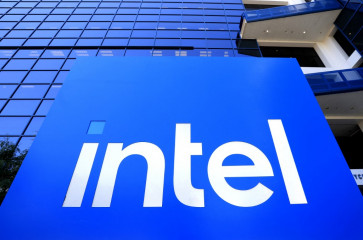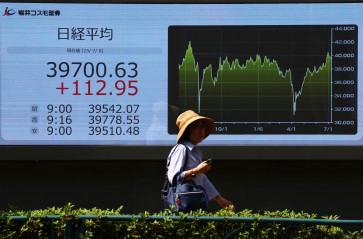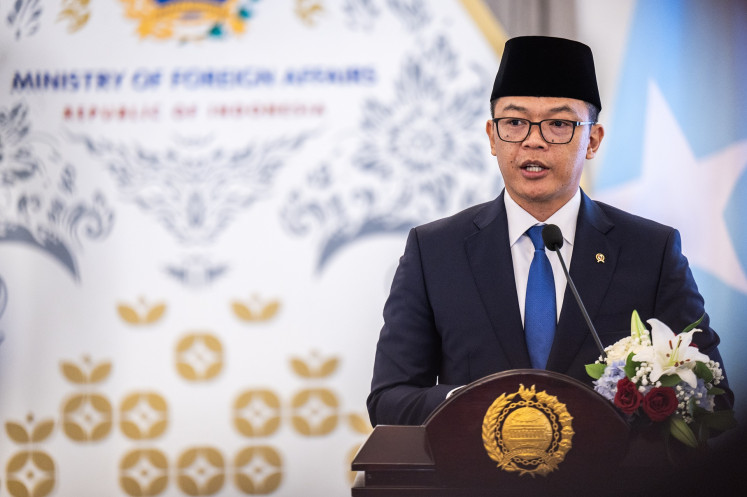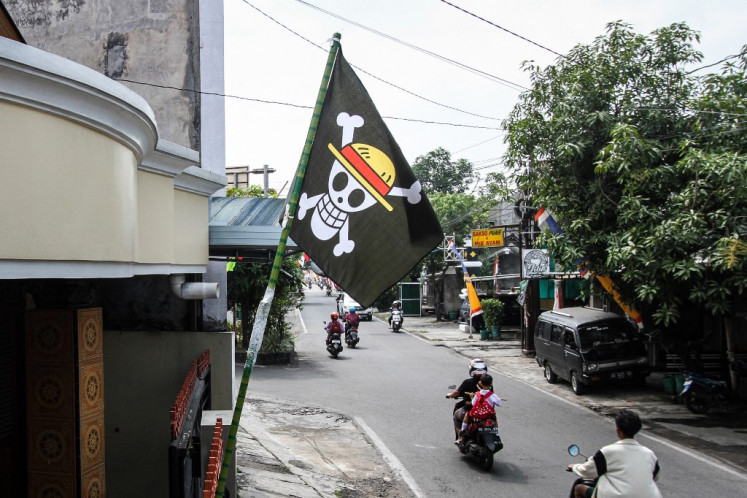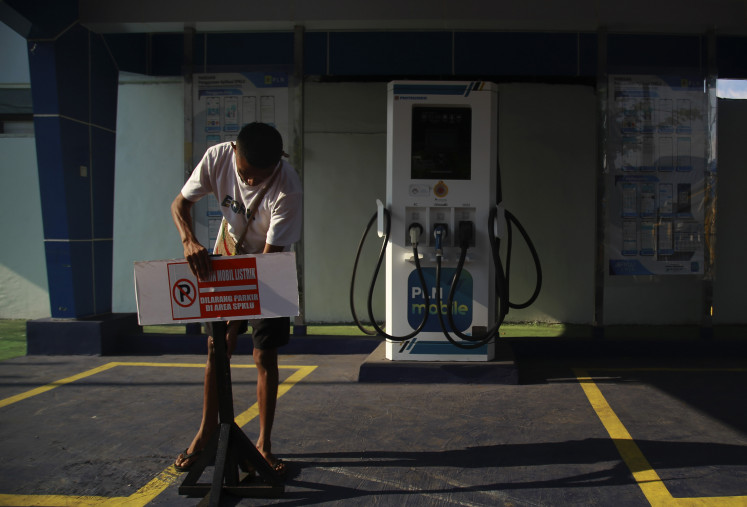Popular Reads
Top Results
Can't find what you're looking for?
View all search resultsPopular Reads
Top Results
Can't find what you're looking for?
View all search resultsManaged market-economy
The three presidential hopefuls rightly chose the economy as the central theme of their campaign because it is economic issues that attract the greatest attention of most people
Change text size
Gift Premium Articles
to Anyone
The three presidential hopefuls rightly chose the economy as the central theme of their campaign because it is economic issues that attract the greatest attention of most people.
But it would be a big waste of resources if campaign speeches by the candidates continued to juxtapose the idea of the neo-liberal economy which anyway has never been implemented in Indonesia in opposition to what they term the “people-oriented economy” which is after all Greek to most economists.
And the more inimical it would be for our economy if some candidates whipped up xenophobic sentiments.
Just one indication: How could we say our economy is neo-liberal when there are almost 200 state-owned companies with assets totaling Rp 1, 964 trillion (US$170.5 billion) equivalent to 40 percent of our gross domestic product while price subsidies account for a big chunk of state spending?
What we have been pursuing so far is by and large a managed market economy whereby the government intervenes whenever necessary for the good of the majority of the people.
It is an irrefutable fact that economic growth and trade remain the best anti-poverty programs in the world and open and competitive markets are the only sustainable vehicle for bringing a nation out of poverty because they are the only guarantees that new ideas, technologies and best practices will flow into our economy.
Private enterprises and even government will have the competitive incentives and flexibility to adopt new ideas and inventions and turn them into jobs and products.
One of our main problems is that the state (and its institutions) are responsible for deciding on when and how to intervene in the market whilst it is notorious as being one of the most corrupt in the world and in many areas lacking in technical competence.
The debates of economic policies during the campaigns for the presidential election would contribute greatly to improving our economic management if they could focus on the ways how to best manage market forces and our natural resources for the interests of the people, while taking into account that our economy has now become part of the globalized economy.
How to get a good balance between government intervention and market mechanisms that rewards transparency, hard work, innovation, creativity and accountability. A harmonious balance between efficacy and accountability is sorely needed.
There is a growing consensus that for free enterprises to flourish and markets to function, they need a set of enabling institutions — a conducive legal environment, and an effective supervisory and regulatory infrastructure — especially in a country like Indonesia where its public administration is ranked among the most corrupt in the world.
The problem, though, is that when the political game increasingly becomes a five-yearly battle for power then underlying crucial issues such as as institution building, bureaucratic reform, human resource quality (education), natural resources, environment and technology, which are crucial to sustaining development in the long run, tend to take a backseat.
Presidential candidates tend to emphasize policies biased toward short-term gains and political benefits, even at the expense of long-term, sustainable development.
All the presidential candidates rightly assert the importance of basic (physical infrastructure) for building up a competitive economy and bringing farmers closer to the market.
But economic policies, however people-centered they are, would not be effective if they are not supported by adequate and ancilliary soft infrastructure (institutions, regulatory and legal frameworks).



